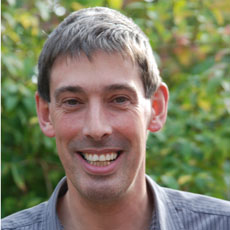After twenty years of involvement in interfaith work, the start of 2017 it seems a good time to reflect on some of the current challenges I’m seeing and suggestions some new issues that we might need to engage with. They are all a critique of the way I’ve worked, or events I’ve been involved in, over the years so it’s not a criticism of others but a personal reflection that might be of interest to others.
- It’s too Middle Class.
Most of the interfaith events I see happening largely involve middle class people of different faiths. However as more people of different faiths move into, what used to be thought of as white working class estates. This will become the new frontier of interfaith work. We have the opportunity to learn from good practice and mistakes in other communities in order to equip these areas to develop good relationships between people in the area. Specifically finding ways to welcome incomers whilst making the indigenous community feels valued and appreciated. Those of us involved in dialogue will need to learn how to work authentically with working class communities. - It’s too left wing.
The vast majority of people in this field are broadly on the political left and socially liberal. Yet all faiths include members who are politically conservative and those who are socially conservative. I’m meeting increasing numbers of staunch conservatives of all faiths who want to get involved in dialogue but, consequently, have a different perspective on a number of issues compared to the majority of people involved. With the political right on the ascendancy it will be vital that people who are politically or socially conservative can be included in interfaith dialogue to both challenge and be challenged by those they disagree with. - It ducks too many difficult issues.
With debates over immigration around the Brexit vote and matters of cohesion in the Casey review these are issues that matter to a lot of people but are rarely discussed within interfaith dialogue groups. Dialogue groups have started to discuss difficult issues such as conversion, however, if dialogue is to increase its impact on society it has to be willing to discuss these societal issues and model good ways to discuss difficult topics. - It’s too deferential.
I think respecting people and listening to the wisdom of elders are good things, but when this becomes uncritical deference it renders dialogue impotent. Too often ‘faith leaders’ or ‘community leaders’ make pronouncements at dialogue meetings that many people in the room disagree with, or that outside the meeting would be considered controversial, yet go unchallenged because of their status. In dialogue have to be able to question even the most revered faith leaders if the conversations are to be genuine and not just one-sided pronouncements.
Adapting to these challenges will be hard for many of us. But if dialogue is to continue to have relevance and to have an impact beyond the ‘usual suspects’ I expect these are issues many of us are going to have to grapple with.

